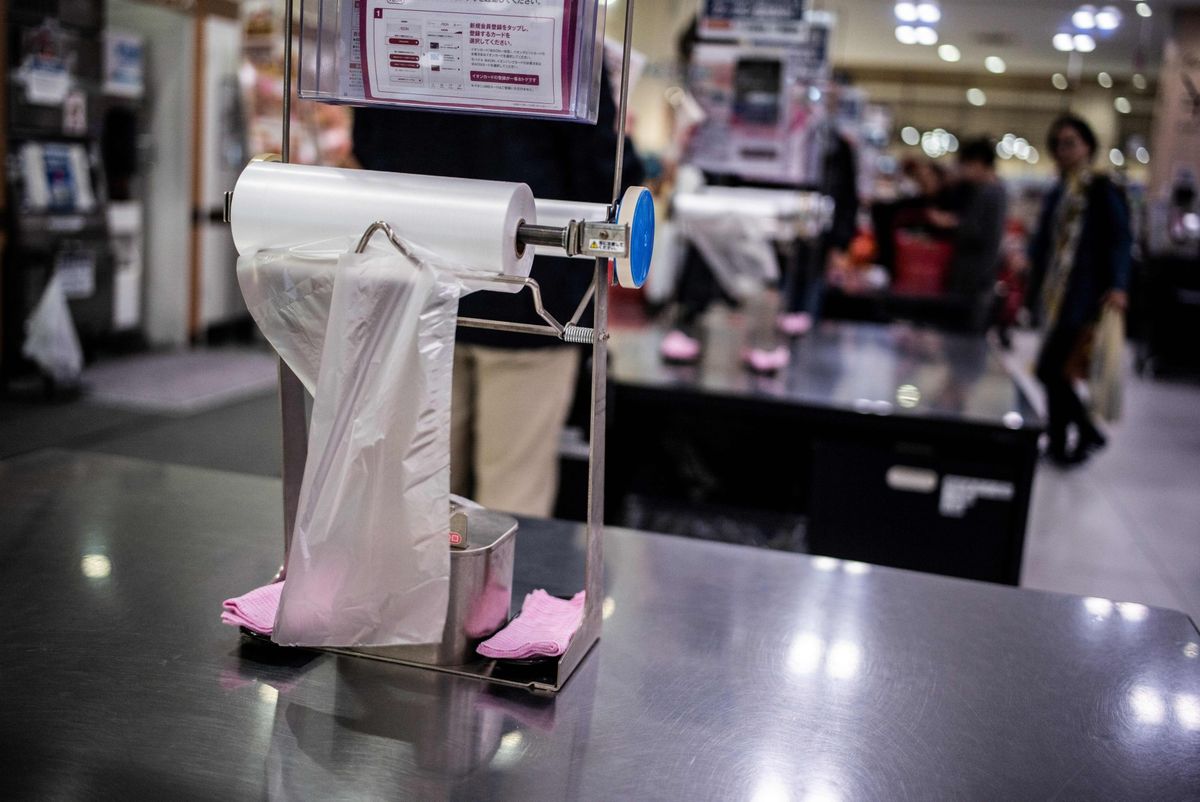Featured
Plastic Bags Are Making a Comeback. Will It Last?: Adam Minter

(Bloomberg Opinion) — After decades of bitter fights, environmentalists seemed to be winning the war against single-use plastics in recent years, with cities around the world banning or taxing them. Then the coronavirus arrived, raising fears that reusable goods might lead to infections. The impact has been swift. From Maine to Hawaii, plastic-bag bans have been suspended or postponed. In San Francisco, reusable shopping bags — once totems of the city’s vibrant commitment to sustainability — have simply been outlawed.
These reversals have sparked deep concern among activists. Some fear the bans will never be reinstated; others that reusable products may be permanently tainted as “unsafe.” The good news is that activists aren’t the only ones demanding more sustainable packaging these days. So are consumers — and some of the world’s biggest corporations are paying attention.
Campaigns against consumer plastics date roughly to the discovery of the Pacific garbage patch in 1988. The environmental movement was soon galvanized, and single-use plastics — especially grocery bags and straws — became a focus of global activism. Much of this was misdirected. According to the Environmental Protection Agency, plastic bags and wraps amounted to only about 0.3% of all the waste generated by homes and businesses in 2010. By comparison, containers and packaging make up about 30%.
Nonetheless, the proliferation of ocean plastic has worried consumers well beyond San Francisco. Last year, a survey of 6,000 people in 11 countries found that 77% perceived plastics to be the “least environmentally-friendly packaging material.” Perhaps unsurprisingly, 72% said they’re buying more environmentally friendly products than they were five years ago, and 83% thought it was important for companies to design products that can be reused or recycled.
Those shifting perceptions haven’t gone unnoticed by consumer brands. Over the past decade, some of the biggest have adopted ambitious sustainability agendas. In 2017, Apple Inc. rolled out an aggressive strategy to embrace sustainable paper and cardboard, which resulted in a 30% reduction in plastic use in iPhone 7 packaging. The next year, nearly 300 global organizations, including companies such as Nestle SA, Mondelez International Inc. and Colgate-Palmolive Co., pledged to eliminate unnecessary plastic packaging entirely.
Some of those commitments may not amount to much. But the broader trend is unmistakable. For example, last May, 5,000 U.S. households gained access to a zero-waste e-commerce site called Loop. It offers brand-name products packaged in custom-designed glass and metal containers, which the company will deliver to your doorstep in reusable tote bags. Once you’re done with them, Loop will collect all the packaging for washing and refilling. Tom Szaky, the chief executive officer of TerraCycle, the company behind the site, told me that the experience isn’t all that different from throwing stuff out; it asks almost nothing of the consumer.
Loop isn’t making much money to start. But its animating idea — that reuse should be as easy as throwing something away — is powerful enough that some very big consumer-goods companies are now designing packaging specifically for the site. Want Clorox wipes delivered in a reusable metal container? Loop has them. Want the same experience with Haagen-Dazs ice cream or Pantene shampoo? Loop has those too, along with products from 400 other brands. It also has a waiting list of would-be shoppers that’s about “100,000 long,” Szaky says. Later this year, the company will start offering pick-up-and-return services at retail outlets around the world.
“Manufacturers are promising recyclability and reusability,” Szaky told me during a Zoom session, “and we’re the easiest way to do it.”
Loop may or may not be successful in the long-term. But the fact is, consumers everywhere are expressing a clear preference for sustainability — and brands are increasingly responsive. Whatever happens with plastic-bag bans, it’s highly likely that this dynamic will ensure that single-use plastics continue to fade from the marketplace. The coronavirus, for all of its challenges, won’t change that hopeful trend.
-

 Banking & Finance2 months ago
Banking & Finance2 months agoOman Oil Marketing Company Concludes Its Annual Health, Safety, Environment, and Quality Week, Reaffirming People and Safety as a Top Priority
-

 News2 months ago
News2 months agoJamal Ahmed Al Harthy Honoured as ‘Pioneer in Youth Empowerment through Education and Sport’ at CSR Summit & Awards 2025
-

 OER Magazines2 months ago
OER Magazines2 months agoOER, December 2025
-

 News2 months ago
News2 months agoAI Security Conference 2025 Hosted by Securado Highlights the Changing Cybersecurity Landscape
-

 Insurance1 month ago
Insurance1 month agoSupporting Community Wellness: Liva Insurance Sponsors Muscat Marathon 2026 with Free Health Checkups
-

 Interviews1 month ago
Interviews1 month agoEXCLUSIVE INTERVIEW: TLS Rebranding Marks Strategic Leap Toward Innovation, Sustainability & Growth
-

 Insurance3 weeks ago
Insurance3 weeks agoLiva Insurance Supports Community Wellness Through “Experience Oman – Muscat Marathon 2026”
-

 Banking & Finance4 weeks ago
Banking & Finance4 weeks agoA New Platform for SME Growth: Oman Arab Bank Unveils Tumouhi






























